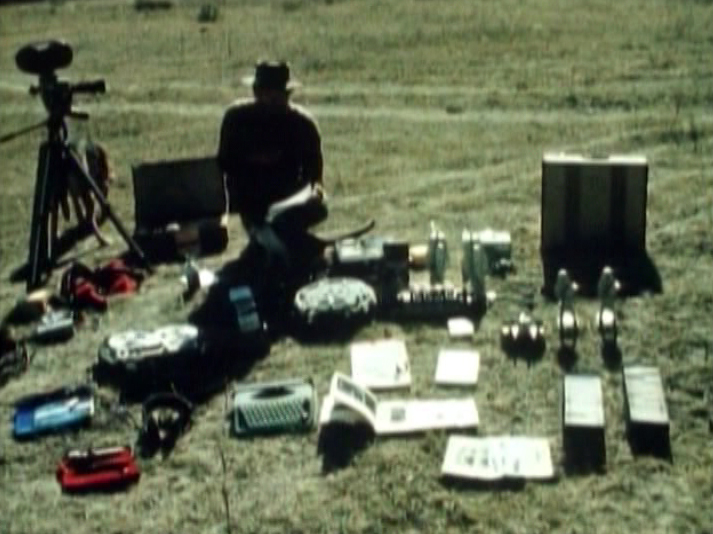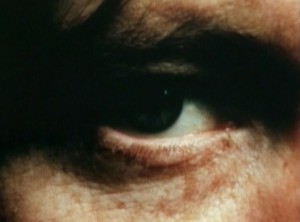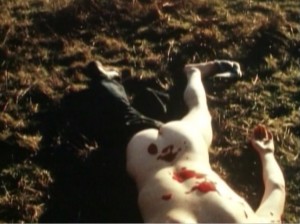Guest Programmed by Eli Horwatt
“Most lenses focus good from about a foot and half away to infinity, which isn’t quite close enough to get a good picture of yourself, or myself.” — Jon Jost, Speaking Directly
Speaking Directly was made after Jon Jost was imprisoned between March 1965 and June 1967 for refusing to serve in the Vietnam War. While this may have left a heroic residue on the film, it is one Jost resists at every opportunity. Segmented according to subject positions and interpersonal relations (I-They, I-You, Female-You, Male-I, People I Know – directly, People I Know – indirectly, etc), Speaking Directly deconstructs the language of war, national identity, gender politics, friendship and ultimately cinema itself. An emblem of renewed interest in production and distribution practices that would characterize the New American Cinema, Jost’s film dances between, but ultimately resists Wollen’s two proverbial avant-gardes—the political and the formal.
Through the testimony of friends and lovers, Richard Nixon and Vietnamese witnesses to American war crimes, Jost weaves a complex tapestry of personal and national narratives. A self-reflexive exercise in accounting for one’s self and sense of national belonging, Jost attempts to characterize all of his relationships with unflinching honesty and, at times excruciating candor. To speak directly for Jost is to demystify the production process, the relationship between the filmmaker and the industries that define the cinematic apparatus, the political contours of watching a film and the various subject positions populating these networks of power. Jost literally and figuratively points to the frame of the screen to investigate film’s jargons of authenticity. The rigorous self-dismantling in Speaking Directly is the source of its greatest strength, as Jost engages in a variety of discursive strategies (direct address, interviews, newscasts, mass media) only to rest upon their inadequacy in the face of capitalism and its devastating symptom: the Vietnam War.
Made while Jost was living in a cabin without electricity or running water in Oregon, Speaking Directly was something of a paradigm shift for Jost, between his structural films like City (1964) and Canyon (1970) towards the experimental narratives that would characterize his later films Angel City (1976) and Last Chants for a Slow Dance (1977). Hailed as a modern masterpiece by Julia Lesage, David James (who called it “The most important film of the early 1970s”), and Jonathan Rosenbaum, Speaking Directly is now only rarely screened.
Programme:
Speaking Directly (Some American Notes), Jon Jost, 1972-1974, USA, 16mm, 110 min
@ Gladstone Hotel, Art Bar | 1214 Queen St West
Monday April 22, 2013 | 8:00 PM screening | $5 suggested donation
#51 = May = TBA


